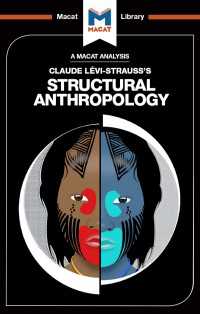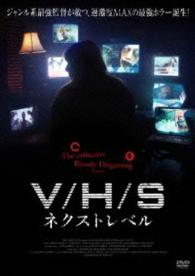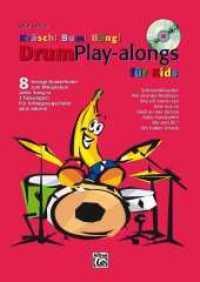Full Description
This book explores the marginalization that English as additional language (EAL) learners, immigrant or language-minoritized people confront when learning to socialize into using the language of schooling. The authors examine racialized academic language not to dismiss it, but to scrutinize its presence and impact on individuals' lives.
Beginning with connections between eugenics, intelligence, whiteness, language, monolingualism and bilingualism, it then reviews current practices, and how the construction of academic language in various schooling and non-schooling contexts creates hegemonic structures that perpetuate deficit perspectives. The final section envisions what could help dismantle the power knots that academic language holds in systemic structures.
This is a vital book for teachers, teacher educators, and policy makers who refuse the deficiency orientations placed on non-standardized use of language at schools and want to deconstruct the power that academic standardized language holds in the lives of language-minoritized students.
Contents
List of Figures
List of Tables
List of Contributors
Foreword, Ofelia García (City University of New York, USA)
Introduction, Sultan Turkan (Queen's University Belfast, UK) and Jamie L. Schissel (University of North Carolina at Greensboro, USA)
Part I: Entanglements of Race and Academic Language: Theoretical Unpacking
1. Academic Language: A Monolingual Social Construction for Language in Academic Contexts that Has No Place in Academic Contexts, Christian Faltis (Texas A&M International University, USA)
2. Enregistering Plural Academic Languages: Possibilities for Diversifying Academic Writing and Publishing, Suresh Canagarajah (Penn State University, USA)
3. The Eugenicist's Best Friend: Academic Language and the Promise of Escape from Racialization, JPB Gerald (CUNY - Hunter College, USA)
Part II: Documenting the Current and Past Practices
4. Unpacking Enregistered Whiteness in Academic Language through Teacher Reflections on Local Language Policy, Lillian Ardell (Language Matters, LLC), Karis Jones (SUNY Empire State University, USA) and Dorsa Fahami (Columbia University, USA)
5. The Effect of Academic Language in ELA and Black Students' Disenfranchisement: A Phenomenology Study, Monisha Atkinson and Donna DeGennaro (University of North Carolina Wilmington, USA)
6. Academic Language for Bilingual Programs: A Focus on L1 Standards, Mariana Alvayero Ricklefs (Northern Illinois University, USA)
7. "My English is not Good": How Raciolinguistic Microaggressions Contribute to Language Minoritization, Ben Calman (McGill University, Canada)
8. From Enregisterment to Extraction: English for Academic Purposes in Settler-Colonial Postsecondary Education, Dmitri Detwyler (University of British Columbia, Canada)
9. Academic Language in Workspaces: If a spot of Blood Gets on the Chicken, Other Chickens Will Mistake It For Feed, Sultan Turkan (Queen's University Belfast, UK)
Part III: Detangling the knots
10. Translanguaging as Manoeuvre: Resisting the Hegemony of English Academic Language at a Historically English Medium University, Mbulungeni Madiba Stellenbosch (University Cape Town, South Africa)
11. Using an Identity Framework to Negotiate Traditional Notions of Academic Language and Writing Instruction with Resettled Youth, Melody Zoch, Amy Vetter, Beverly Faircloth and Teena Martin (University of North Carolina at Greensboro, USA)
12. Diversity, Inclusion, and the "Balancing Act": Working in the Writing Centers as a Person of Color, Shreya Sangai (York University, Canada)
Conclusion, Jamie L. Schissel (University of North Carolina at Greensboro, USA)
Index
-

- 洋書電子書籍
- <100ページで学ぶ名著>レヴィ=スト…
-

- DVD
- V/H/S ネクストレベル






